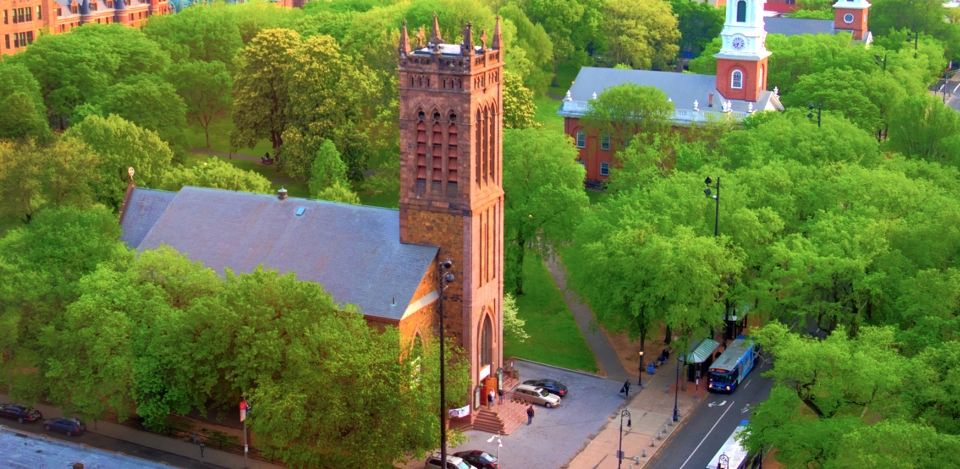The New Haven Register has published a piece on eight Connecticut Episcopal parishes that are trying to discern their future as churches and declining congregations: St. Andrew’s, Trinity Church on-the-Green, Christ Church, St. Thomas’s, St. James’, St. John’s, St. Luke’s, St. Paul and St. James (also known as St. PJ).
“Almost all are in some form of transition, either getting along with fill-in priests or changing from full-time to part-time clergy,” and each church has its own distinctive area of ministry, making the possibility of merging parishes more challenging.
It’s possible that number will shrink, although merging with another parish is “the hardest to do,” [Bishop Ian T.] Douglas said. Each has a distinct ministry, making combining more difficult to contemplate. For example, St. Thomas’s operates a school, St. Luke’s serves a large West Indian community, and St. James’ has a band that plays in the community as well as at services. (The Episcopal Church at Yale, which has an independent board and a new chaplain, is “happy to participate in the conversation,” Douglas said.)
“I do think the exciting thing is people were saying, ‘Wow, we can actually think in these terms … and it’s actually a liberating change of reference. … Some parishes might choose to go out of business rather than be renewed in the Easter experience. But that’s the choice,” he said.
The parishes are talking together, with more conversation planned:
“We’re actually doing something new in New Haven. … When we got together we talked about the new times we’re living in post-Christendom,” referring to the current era when the church has lost much of its influence in society.
While the diocese has ended the longtime practice of subsidizing small, poor parishes (once called “mission parishes”), Douglas said $100,000 has been designated in the diocesan budget “for parishes in communities that are 75 percent of the median income of communities in Connecticut … and who are current with their bills and which don’t have large endowments and are doing effective and important ministry.”
Douglas said the parishes and the diocese are “really trying to say, OK, people of God in New Haven … How do you want to parse this? How do you want to do this together as the Episcopal Church?”
The old model of “eight independent parishes sailing alone is not going to be of the future,” Douglas said. But he said it will be up to the parishes to decide how to move forward.
The churches are exploring new ways of using their properties – St. PJ’s, for instance, is exploring the idea of converting their parish hall into housing for elderly or low-income people. St. James is sharing space with a Catholic congregation.
The Rev. Barbara Cheney, priest-in-charge of St. James (and former rector of St. PJ’s), which serves Fair Haven and Fair Haven Heights, said of the city’s Episcopal churches, “All are having economic problems in one fashion or another … Nobody is feeling absolutely comfortable economically and several of us are determining whether we have a future or not, whether it’s a storefront or part of our building gets sold.”
Cheney, who, besides being a priest, plays drums in the St. James band, says there is a sense of hope and possibility:
“God isn’t done with us yet,” Cheney said. The congregation “does not have a sense of dispiritedness about it at all.”
Douglas, she said, “keeps using the word ‘experiment.’ Just try something on, just try it on and think of it as an experiment.”
8 Episcopal parishes in New Haven consider future as congregations shrink, costs grow https://t.co/YtRruBZjWg Thanks Ed Very faithful #ECCT
— Ian T. Douglas (@ctbishopian) May 31, 2016
Photo at top: Trinity On The Green, New Haven

